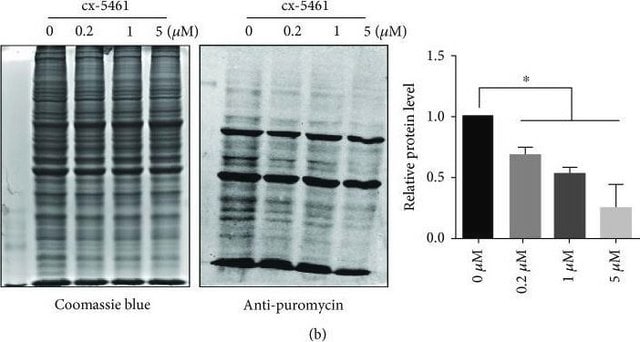P8333
Anti-Protein Kinase Cδ antibody produced in rabbit
whole antiserum
Sinonimo/i:
Anti-PKC δ
Scegli un formato
Scegli un formato
About This Item
Prodotti consigliati
Origine biologica
rabbit
Coniugato
unconjugated
Forma dell’anticorpo
whole antiserum
Tipo di anticorpo
primary antibodies
Clone
polyclonal
contiene
15 mM sodium azide
Reattività contro le specie
rat
tecniche
dot blot: 1:50,000
microarray: suitable
western blot: 1:10,000 using rat brain extract
N° accesso UniProt
Condizioni di spedizione
dry ice
Temperatura di conservazione
−20°C
modifica post-traduzionali bersaglio
unmodified
Informazioni sul gene
rat ... Prkcd(170538)
Descrizione generale
Specificità
Immunogeno
Applicazioni
- immunoprecipitation
- immunohistochemistry
- immunoblotting
- ELISA
- chemiluminescence detection systems to detect PKC δ
- dot-blot immunoassay
Western Blotting (1 paper)
Azioni biochim/fisiol
Stato fisico
Stoccaggio e stabilità
Esclusione di responsabilità
Non trovi il prodotto giusto?
Prova il nostro Motore di ricerca dei prodotti.
Scegli una delle versioni più recenti:
Possiedi già questo prodotto?
I documenti relativi ai prodotti acquistati recentemente sono disponibili nell’Archivio dei documenti.
Filtri attivi
Il team dei nostri ricercatori vanta grande esperienza in tutte le aree della ricerca quali Life Science, scienza dei materiali, sintesi chimica, cromatografia, discipline analitiche, ecc..
Contatta l'Assistenza Tecnica.






